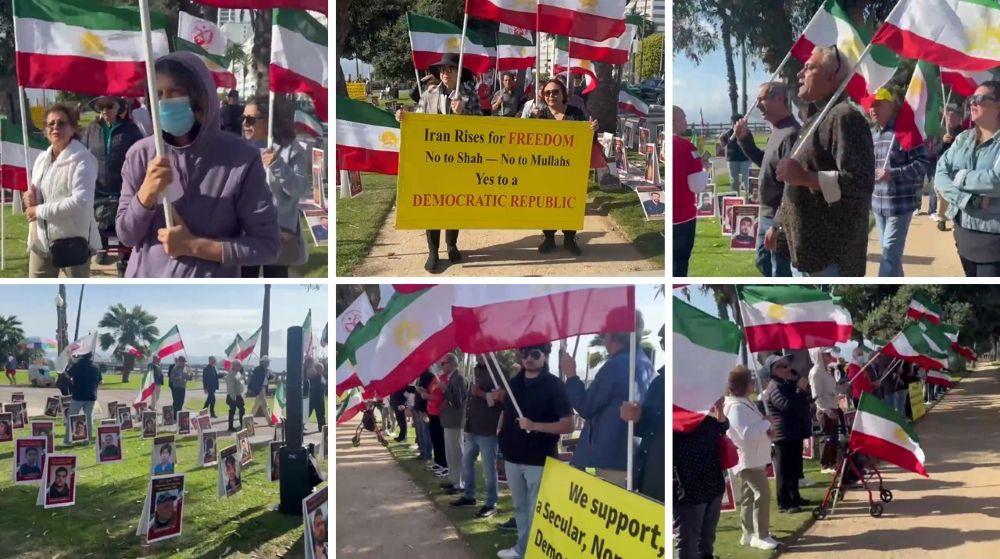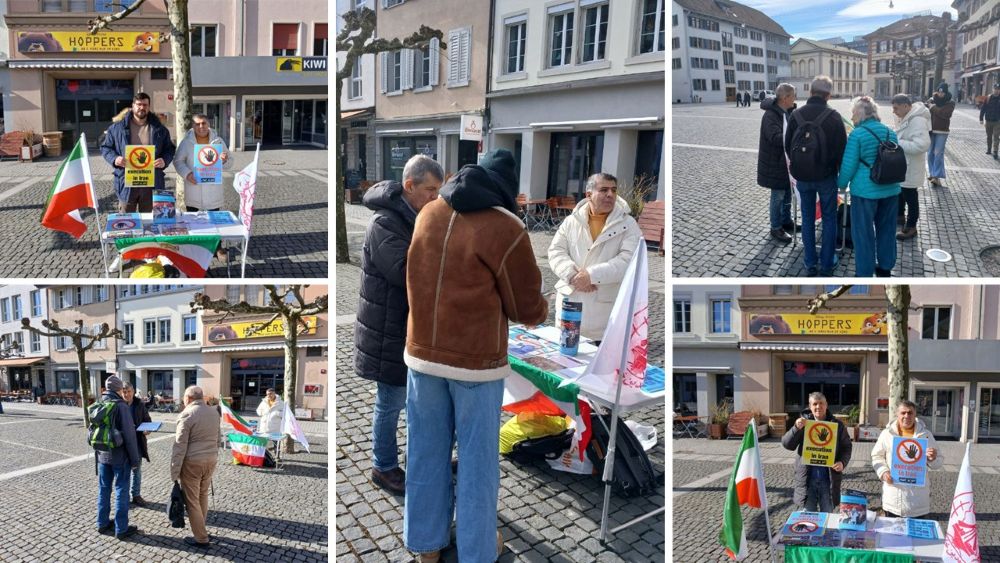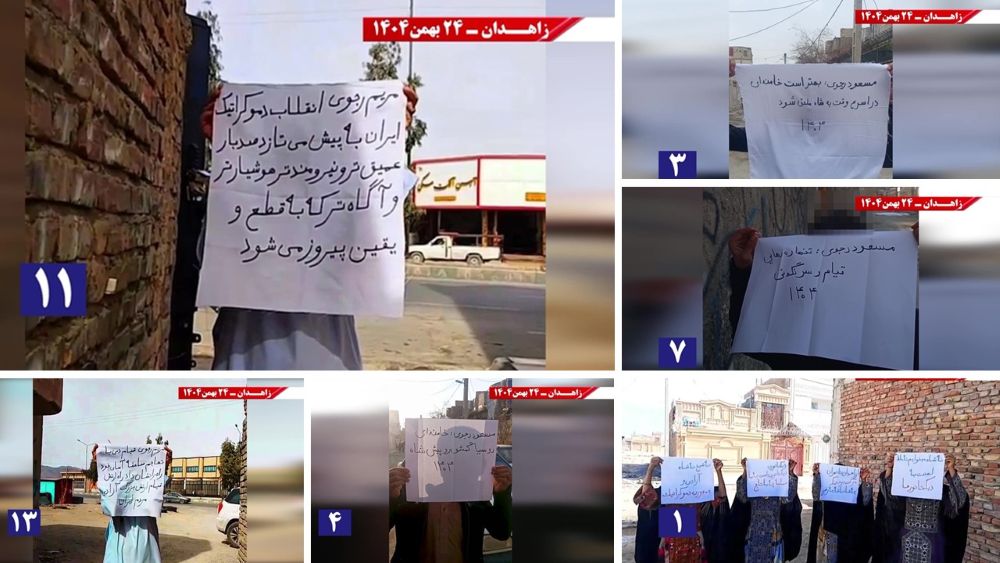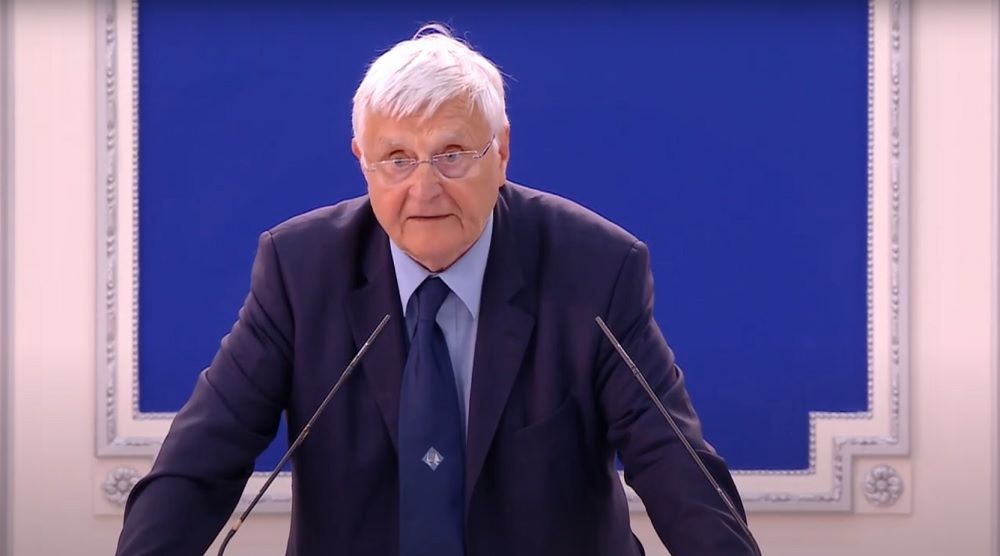
At a recent international conference organized by the Iranian Resistance, Professor Wolfgang Schomburg, former Judge at the UN International Criminal Tribunal for the former Yugoslavia (ICTY) and Rwanda (ICTR), advocated for the creation of a new tribunal to address crimes committed by the Iranian regime.
Professor Schomburg, who also served on Germany’s Federal Supreme Court, underscored the critical need for justice and accountability for the victims of the 1988 massacre and other atrocities linked to the Iranian regime. He suggested that Iranian civil society organizations in exile, led by Maryam Rajavi, take the lead in establishing a tribunal to investigate and document these crimes.
He further emphasized the importance of international collaboration and the use of universal jurisdiction to prosecute crimes against humanity. Professor Schomburg urged European Union countries, particularly Sweden and Germany, to coordinate efforts in prosecuting cases related to Iran, thereby avoiding duplication and improving the efficiency of legal actions. He called on the international community to support the proposed tribunal and ensure that those responsible for the atrocities in Iran face justice.
The full text of Professor Wolfgang Schomburg’s speech follows:
Thank you. Madam President-elect, dear Maryam Rajavi, honorable survivors, relatives of victims, and witnesses of the atrocities in the 80s present here today or participating, from a distance.
Dear interpreters, allowing us to understand each other, my gratitude.
Dear colleagues and friends of a free and democratic Iran. Thanks to the unlimited efforts of this organization, the events of, in particular, 1988, are still present as if they had happened yesterday.
The link to the executions of this year 2024 becomes more and more evident since the new president of Iran is in office. A moderate government? No. No way. On the contrary.
We observe, on the one hand, a beautiful country, but on the other hand, led by a theocratic dictatorship that the people of Iran have not and do not deserve. What can we do? Today, we have heard an analysis of the actual and legal situation in Iran about 40 years ago and today. It was with personal gratitude that Professor Rehman, also today delivered a basis for the work to be done. Some of his suggestions can be found at the end of his extraordinarily valuable report.
His call for accountability directed towards new mechanisms and assistance by international organizations or other countries exercising your universal jurisdiction was represented in this room also that day. It’s with special emphasis on the rule of, is this universal jurisdiction exercised in Sweden, but also in other countries, in particular, in the European Union.
The added value has already been emphasized by, Mark Ellis and also, by, Mr. Lewis. The only question remains for me, wouldn’t it be helpful for some countries to work together in certain areas? It’s an enormous amount of, time and, of course, also money to hear out single cases one day in Sweden, next day in Germany, and the other day in France.
The European Union has an institution called Eurojust. The task of this unit is to assist countries in the European Union with a transfer of bringing cases together. This would avoid the additional and parallel workload so that one day, all the cases, dealing with Iran could be, say, brought before the courts in Sweden. Other cases, for example, Germany at present is seized with the fate of the Yazidi women and girls in Syria, could be explicitly focused in Germany.
So, this is only one added point, but I totally agree with your assessment of universal jurisdiction and the cases we have already heard.
This striving for accountability must be saluted. It is, however, dependent on the strong political will of other countries. Is this present? I never give up the hope that there will be such a dominant political will to bring justice also to the people of Iran.
On the other hand, we have to be realistic. As for the realization of the desirable avenues in the near future in this particular fragile world, notwithstanding, we have to give priority to these official tools of justice, as said, if it’s possible.
But this organization, Madame President-elect, can right this wrong by their own actions. It is already acquainted with. We must go one step higher from the utmost valuable means of inquiry to a tribunal established by the Civil Society of Iran represented by exile organizations led by Maryam Rajavi.
By the way, already, as it was mentioned right now, already in 1966, we had such an example. We had the Russell Tribunal, also known as International War Crimes Tribunal at that time already in 1966. A private people’s tribunal was organized by Bertrand Russell, Jean-Paul Sartre, and others.
This tribunal investigated in particular the military intervention in Vietnam. Very important at that time, I recall.
What is the added value of such a tribunal or court established by civil society? It serves better the necessary truth-finding mission in the interest of all the victims. Cross-examination and additional questions put to the witnesses by the judge will fine-tune the truth in light of applicable international norms. The presence of international well-equipped judges impartial and independent as they must be, will show that justice can be seen to be done also on this level.
Finally, a judgment will fix the results of such a procedure for the future of domestic or international courts. The results may present cogent reasons for the establishment of an international court or tribunal. The evidence admitted in such a procedure can also be admitted into evidence at the latest stage by foreign courts, international tribunals, or in the most optimistic way of thinking in a new democratic society on the territory of Iran including, of course, an impartial jurisdiction in Iran. That’s what we need.
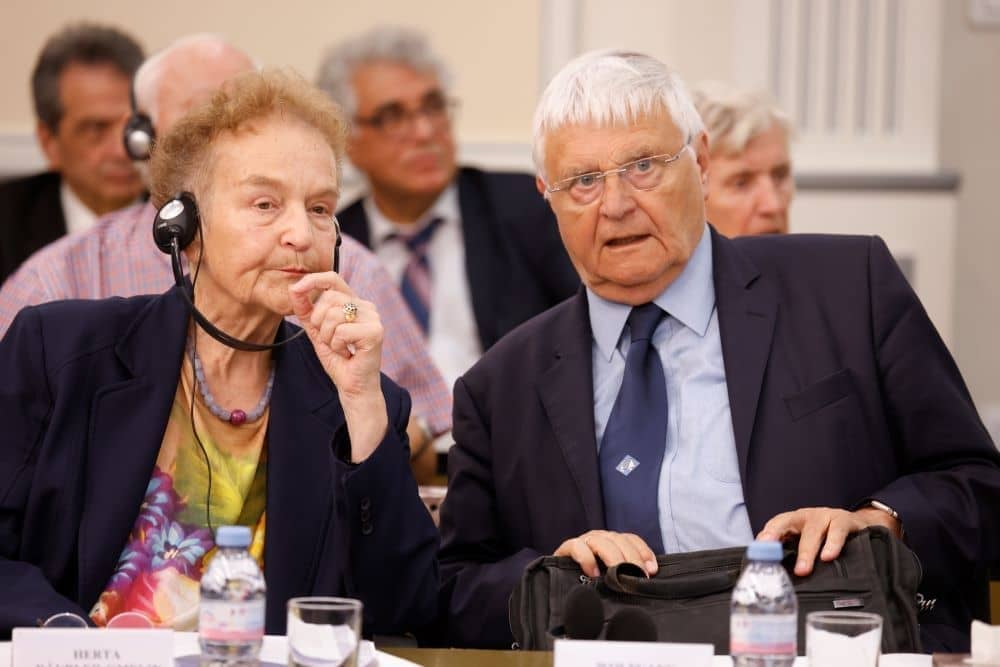
The awareness of transparent justice will also hopefully contribute to a transition in peace in Iran without any bloodshed and having abolished the death penalty.
Let me be abundantly clear. I’m talking about a tribunal seized solely with international atrocity crimes, forming at the same time international crimes, in particular, committed as widespread and, in this case, systematic attacks. To go beyond the area of international armed conflicts must be left to the ICC.
In passing, simply to say, the ICC should be encouraged to investigate also how far the mullah regime is involved in the crimes committed since 7th October 2023 in the Near East conflicts.
The establishment of such a tribunal should be vested in this organization. Prosecutors, judges, and defense counsel acting in the absence of defendants must be of the highest integrity and have shown that they are willing and able to exercise such a function in a professional way.
The tribunal should work in public and be broadcast in order to attract even more awareness about the underlying crimes. The indictment must be drafted with utmost precision and focus on a limited number of the most serious crimes allegedly committed by highest ranking individuals in and from Iran.
Defense and judges must be confronted with this indictment well in advance of the beginning of the main proceedings. It is to apply the Rome statute of the ICC and its rules, procedure, and evidence, however, allowing for a trial in absentia of the defendants.
Dear friends and colleagues, I’m about to lose myself in technicalities. Thus, I should come to an end. But before doing so, it has to be emphasized that even a 2- or 3-day trial is extremely time-consuming in its preparation. Spending more time on preparation enhances the credibility of the result.
Inappropriate expeditiousness may cause a cause. That’s not what we want. What we want is to come as close as possible to truth and justice, serving as a fundamental for peace. This can be done by way of showing accountability. We can ourselves achieve this goal. We have to engage in the establishment of such a tribunal. And please allow me a working title only: “The National Councils of Resistance Tribunal for the prosecution of serious international crimes committed on the territory of Iran since 1980 against Iranian people, in particular, of other political opinion or religious beliefs.”
As I said, this would only be one additional avenue of achieving accountability, transparency, and justice, and to show who was responsible. I hope that you can think about this topic and come to the same result as I do, hoping for the future.
And I have to thank you very much.

